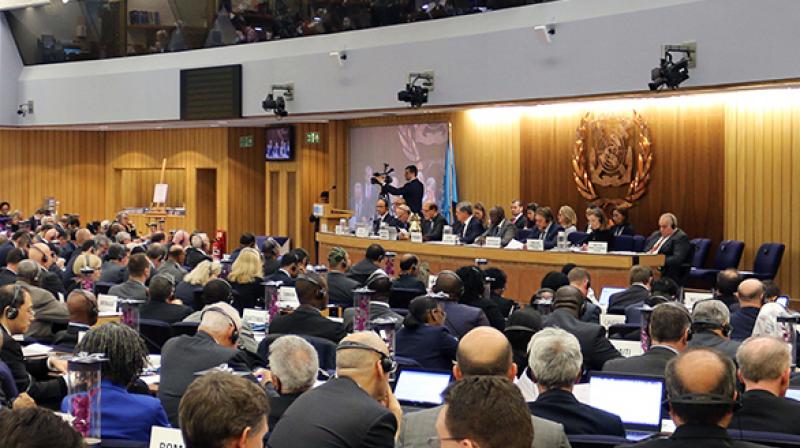
The International Maritime Organisation’s highest governing body, the IMO Assembly, has adopted new amendments to expand the size of IMO Council, which is the executive organ responsible for supervising the work of the IMO.
The IMO Assembly is currently meeting for its 32nd session.
In addition to expanding the size of the Council from 40 to 52, the adopted amendments to the IMO Convention will extend the term of its Members and recognise three additional language texts as authentic versions of the IMO Convention.
“The adoption of the amendments to the IMO Convention is a major milestone in the reform of the Council.,” said IMO Secretary-General Kitack Lim. “The expansion of the size of the Council to 52 will support the attainment of a representative, balanced, diverse, and efficient Council, that can support the interests of the whole membership and ensures the representation of all the major geographic areas of the world.”
“In view of the importance of these amendments, I urge Member States to communicate their instrument of acceptance to me for deposit with the Secretary-General of the United Nations at their earliest convenience,” Secretary-General Lim added.
The current structure of the IMO Council will remain unchanged until the amendments enter into force. Under the proposed reforms, the IMO Council will increase by 12 Member States, from its current 40 Members to 52. Expanding the size of the IMO Council would see 12 seats allocated to Categories (a) and (b), representing States with the largest interest in providing international shipping services and States with the largest interest in international seaborne trade each, respective. Category (c), which are States not elected under (a) or (b) but have special interests in maritime transport or navigation, will expand to 28 seats.
The IMO Council has seen a number of expansions since it was established with 16 Member States in March 1958, following the entry into force of the 1948 IMO Convention.
The most recent expansion was a result of the 1993 amendments that came into force in 2002 and increased the size of the Council to 40, with Groups (a) and (b) increased to 10 and Group (c) to 20 Member States.
Meanwhile, the amendments adopted related to Member term length call for Council Members to remain in their roles until the end of the next two consecutive regular sessions of the Assembly, after which they would be eligible for re-election.
The IMO Assembly also adopted amendments so that Arabic, Chinese and Russian will be added as authentic texts of the IMO Convention, supplementing the current authentic texts in English, French and Spanish.
The IMO Council is elected by the Assembly and, between sessions of the Assembly, performs all the functions of the Assembly with the exception of making recommendations to Governments on maritime safety and pollution prevention.
The amendments adopted during the session relate to Articles 16, 17, 18, 19(b) and 81 of the Convention on the International Maritime Organisation and require acceptance by two thirds of the IMO Membership, or 117 Member States (based on the current membership of 175 Member States) for entry into force.
Copyright Ships & Ports Ltd. Permission to use quotations from this article is granted subject to appropriate credit given to www.shipsandports.com.ng as the source.